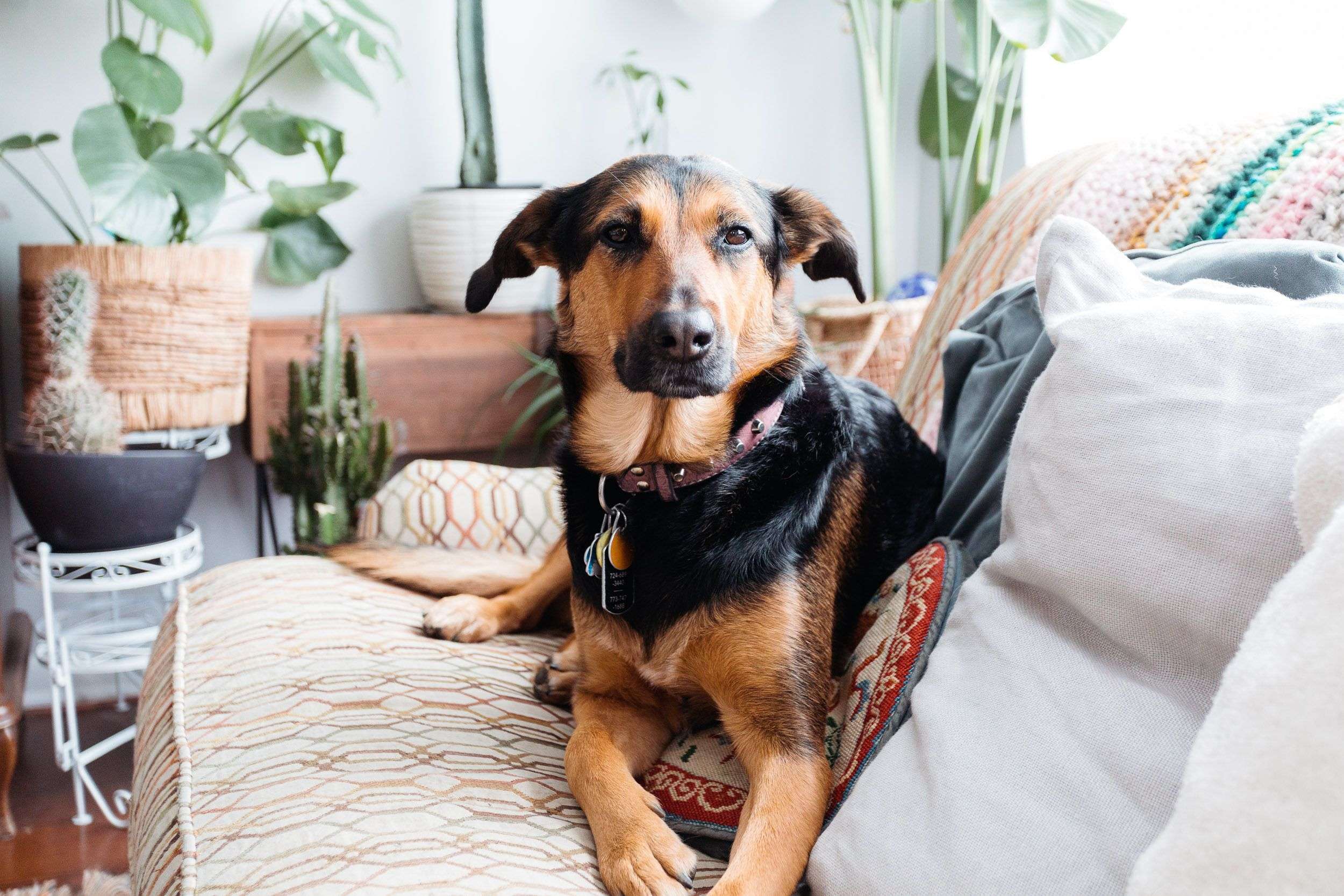Key Takeaways:
- Yawning in dogs can be a sign of stress or anxiety.
- Dogs may yawn as a way to communicate their discomfort or unease.
- Yawning can also indicate fatigue or boredom in dogs.
- Observing other body language cues alongside yawning can help determine the underlying meaning.
- If your dog frequently yawns without an obvious reason, it's important to consult with a veterinarian to rule out any medical issues.
Are you curious about what your furry friend is trying to tell you? Well, get ready to unlock the secret language of dogs! One of the most fascinating behaviors our canine companions exhibit is yawning. Yes, you read that right - yawning! While it may seem like a simple act of sleepiness, it actually holds a wealth of information about your dog's emotions and well-being. Understanding what it means when your dog yawns can help strengthen the bond between you and your four-legged companion, ensuring their happiness and overall health. So, let's dive into this intriguing topic together and discover the hidden messages behind those adorable yawns. Get ready to be amazed by the insights you'll gain into your dog's world!
Why does my dog yawn so much?
Yawning is a common behavior in dogs, and it can have various meanings. While yawning can indicate tiredness, dogs often yawn for other reasons too.
One reason your dog may yawn frequently is to communicate stress or anxiety. Just like humans, dogs can feel nervous or overwhelmed in certain situations. Yawning can be a way for them to cope with these emotions and try to calm themselves down. If your dog is yawning a lot in unfamiliar environments or during certain activities, it could be a sign that they are feeling stressed.
Another possible reason for frequent yawning in dogs is as a way of communicating with humans. Dogs are highly perceptive creatures and can pick up on our emotions. They may yawn when they sense tension or unease from us, as a way of showing empathy or trying to diffuse the situation. So if you're feeling stressed or anxious, pay attention to your dog's yawns - they might be trying to comfort you!
Reasons why dogs yawn other than being tired
Dogs don't just yawn when they're tired - there are several other reasons why they might exhibit this behavior.
One possible reason is that yawning helps dogs stretch their jaw muscles and increase blood flow to their brain. This can be especially beneficial after periods of rest or sleep, helping them wake up and get ready for activity.
In addition, dogs may yawn as a way of communicating their intentions to other animals or people around them. Yawning can serve as a calming signal, indicating that the dog wants to avoid conflict or aggression. It's like saying "I'm not a threat" or "I mean no harm." So if you see your dog yawning during interactions with other dogs or strangers, it's their way of trying to keep the peace.
How to tell if my dog is stressed or anxious through yawning
Yawning can be a sign that your dog is feeling stressed or anxious. Here are some signs to look out for:
- Frequent yawning, especially in new or challenging situations.
- Excessive panting or drooling along with yawning.
- Restlessness or pacing combined with yawning.
- Avoidance behaviors, such as hiding or trying to escape, accompanied by yawning.
If you notice these signs and suspect that your dog is stressed, it's important to address the underlying cause. Provide a safe and calm environment for your dog, and consider consulting with a professional trainer or veterinarian who can help you manage their anxiety.
Do dogs use yawning to communicate with humans?
Dogs are incredibly perceptive creatures and can use yawning as a way of communicating with humans. They may yawn in response to our emotions or as a way of showing empathy.
For example, if you're feeling tense or anxious, your dog might yawn in an attempt to calm you down. They can sense our emotional state and may try to mirror it in order to establish a connection. It's their way of saying "I understand how you feel" and offering comfort.
In addition, dogs may also yawn when they want attention or are seeking reassurance from their owners. If your dog yawns while looking at you, it could be their way of saying "Hey, I need some love and attention right now!" So next time your furry friend yawns, pay attention and respond accordingly.
What to do if my dog yawns a lot or in strange situations
If your dog is yawning a lot or in unusual situations, it's worth paying attention and addressing any potential issues.
First, observe your dog's body language and overall behavior. If they seem tense, restless, or exhibit other signs of stress along with frequent yawning, it could be a sign that something is bothering them. Try to identify the trigger - it could be a specific noise, person, or situation.
Once you've identified the cause of their discomfort, take steps to alleviate their stress. This might involve creating a safe space for them to retreat to, providing positive reinforcement and rewards during challenging situations, or seeking professional help from a trainer or behaviorist. Remember that each dog is unique, so what works for one may not work for another. Be patient and understanding as you work through the issue together.
Possible medical reasons for frequent yawning in dogs
In some cases, frequent yawning in dogs can be related to underlying medical conditions. It's important to rule out any potential health issues before assuming it's solely behavioral.
One possible medical reason for excessive yawning is respiratory problems. If your dog has difficulty breathing due to issues such as allergies, asthma, or an obstruction in their airways, they may yawn more frequently as a way of trying to catch their breath.
Another potential cause could be pain or discomfort. Dogs may yawn when they are experiencing physical discomfort or even dental problems. If you suspect this might be the case, it's crucial to have your dog examined by a veterinarian who can determine the root cause and recommend appropriate treatment.
Can I train my dog to stop excessive yawning or to yawn on command?
While you can't directly train your dog to stop yawning, you can work on reducing their overall stress and anxiety levels, which may in turn decrease the frequency of yawning.
To help your dog become more comfortable in various situations, consider desensitization and counterconditioning techniques. This involves gradually exposing them to the trigger that causes stress or anxiety while providing positive reinforcement and rewards for calm behavior.
As for teaching your dog to yawn on command, it's not a common training cue but it is possible with patience and consistency. You can try pairing a verbal cue like "yawn" with a hand gesture or action that mimics yawning. Whenever your dog naturally yawns, say the cue word and reward them. Over time, they may start associating the word with the action and eventually yawn on command.
In conclusion, when a dog yawns it can mean different things. It might be tired or bored, but it could also be a way for them to communicate with us humans. Paying attention to their body language and context can help us understand why they are yawning.
What does it mean when dog yawns at you?
Rugaas also states that dogs use yawning and other calming signals to convey their peaceful intentions to others, in order to prevent conflict or defuse a potentially dangerous situation.
Do dogs yawn when they are happy?
Just like humans yawn when they are stressed, dogs may also yawn when they are happy and excited. Excessive excitement can sometimes be difficult for dogs to handle, causing them to become overly excited in certain situations.
Does a dog yawn always mean stress?
Dogs often yawn as a way to calm themselves and cope with stress in their surroundings. They may become overwhelmed by conflict, loud noises, unfamiliar individuals, children, other animals, or new environments.
Do dogs yawn to show affection?
A study conducted by researchers at the University of Tokyo discovered that dogs have a tendency to yawn in response to others' yawns, just like humans do. They are most likely to exhibit this behavior with individuals they have an emotional connection to. This study was conducted on February 14, 2017.
Why does my dog yawn when I cuddle him?
Dogs yawn as a result of being excited because they are receiving a lot of attention and affection, which fills them with excitement. Yawning is a way for them to release their built-up anticipation. You may also observe a yawn when they are about to go for a walk or when it's time for them to eat.
What does it mean when a dog stretches in front of you?
When your dog stretches upon seeing you, it is a sign of happiness and affection. This stretching behavior is known as a greeting stretch because it is how dogs greet their loved ones. The greeting stretch is similar to a play bow, except that in this case, the dog's front legs are aligned.

















